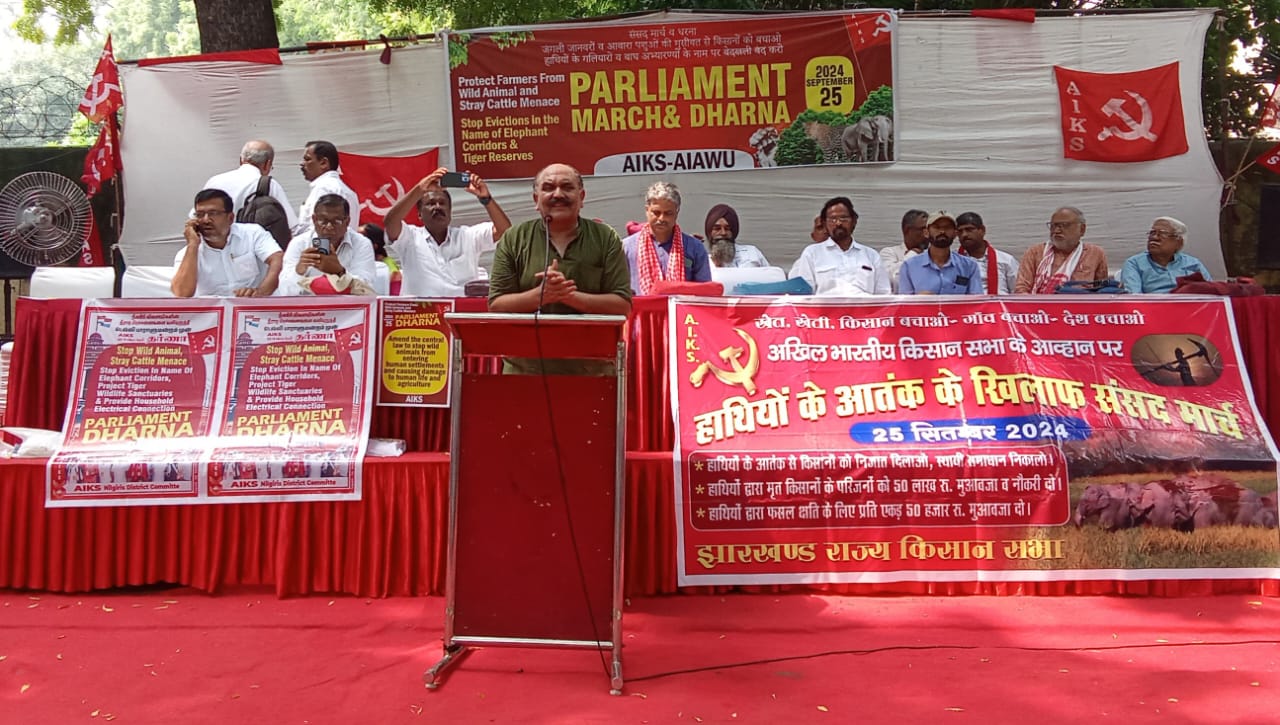Farmers’ March to Parliament Demands Action on Wild Animal and Stray Animal Issues.

New Delhi:
In a significant protest, the All India Kisan Sabha and All India Agricultural Workers Union organized a march to Parliament addressing the pressing issues related to wild animals and stray livestock. The farmers emphasized the urgent need for government intervention to ensure the safety of human life, property, and livelihoods from wildlife attacks.
During the rally, farmers criticized government policies, particularly poor afforestation practices that promote invasive species like eucalyptus, babul, teak, and African tulip. They argued that these policies have led to groundwater depletion, forcing wildlife to venture out of their habitats in search of food and water.
Dr. Kuldeep Singh Tanwar, president of the Himachal Kisan Sabha, shared his experiences, stating that farmers in Himachal Pradesh have fought for a decade to declare monkeys as vermin. However, he lamented that the government remains reluctant to undertake scientific culling of problematic wildlife. He highlighted that stray animals are becoming a significant threat, damaging crops and causing road accidents.
The farmers’ organizations demanded compensation of Rs. 1 crore for families of those killed in wildlife attacks and Rs. 50 lakh for those seriously injured. They presented a ten-point charter of demands to the central government, urging immediate action to address the crisis.
Key demands include:
1. Amendments to existing wildlife laws to ensure safety for human life and livelihoods.
2. Empower state governments to declare violent animals and undertake scientific culling.
3. Prohibition on arbitrary establishment of wildlife corridors and reserves.
4. Guarantee of forest rights and prevention of violations of the Forest Rights Act (FRA).
5. Removal of bans on livestock trade and measures against anti-cow protection groups.
6. Implementation of compensation for crop damage caused by wild animals.
7. Phased removal of invasive timber species and promotion of fruit-bearing trees.
8. Creation of protective measures like trenches and electric fencing.
9. Community patrolling under the MGNREGA scheme at a daily wage of Rs. 1,000.
The protest underscores the growing urgency for the government to address the conflicts between wildlife conservation and agricultural livelihoods, seeking a balanced approach to ensure the safety and sustainability of both.



